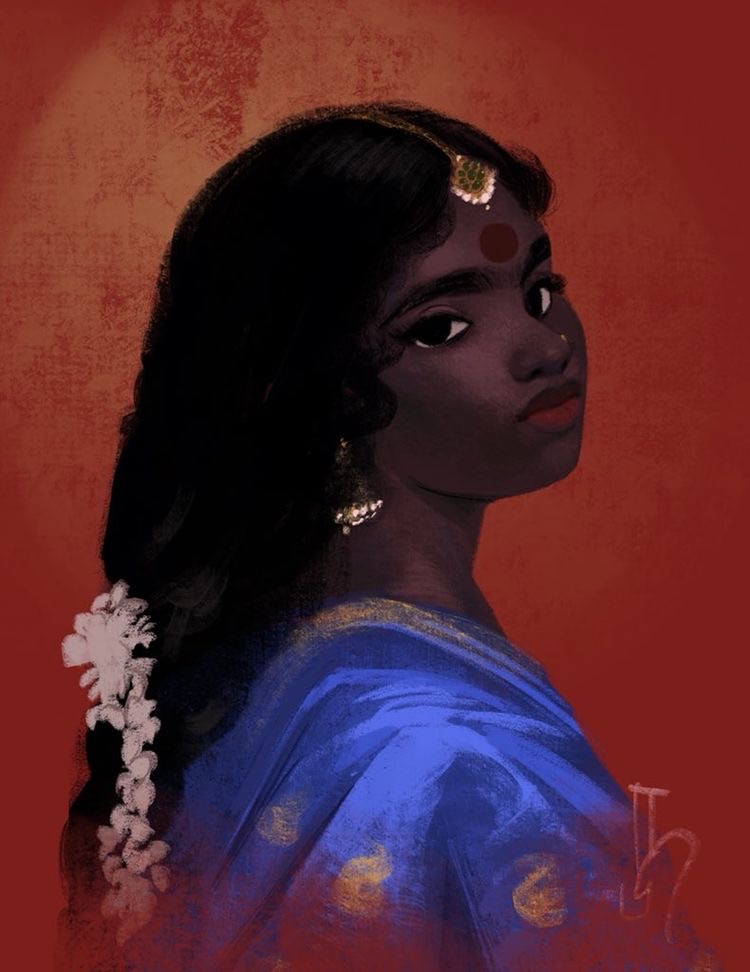
I scan row after row of beauty products on the shelf and there is one thing that stands out very distinctly; not a single shade of foundation matches my skin. All of them are varying shades of lighter tones. Is my colour so unsightly that it needs to be concealed by using shades lighter than my actual skin?
As Indians, the obsession with fair skin can be seen everywhere. Whether it is commercials for skin lightening agents plastered across giant billboards or marriage advertisements demanding a “fair, good-looking bride”, fair skin has always been associated with purity, beauty, and confidence. For a young child who is still trying to make sense of their identity, the propagation of such ideas can be crippling to their self-worth and esteem.
It seems that the entertainment industry bathes in the glorification of light skin. Fairness is celebrated in all its glory as seen in song lyrics ranging from:
“Yeh kaali kaali aankhein, yeh gore gore gaal”
“kaala chashma jachta hain gore mukhde pe”
or the very ‘subtle’, “Gori gori gori, gori gori, Kabhi Kabhi kahin kahin chori chori”.
From film titles celebrating fairness, “Gori Tere Pyaar Mein” to the beautiful protagonist of a popular TV show being referred to as “Gori ma’am”, this fascination with skin colour seems to have no end.
TV soaps often have fair-skinned protagonists while the ‘vamp’ is usually one of darker complexion. Furthermore, insults are often based on complexion (enter Lalita Pawar with her famous dialogue, “Arrey Kalmuhi”). As if this wasn’t enough when it comes to the portrayal of dark skin on screen, it is often an actress of fair skin chosen and the makeup is akin to boot polish being smeared on her face. Why is the portrayal of dark the same as dirty? Why is having a dark complexion seen as something that needs to be cosmetically fixed?
From mothers using homemade remedies to lighten the skin tone to grandparents praising newborn grandchildren with fairer skin tones, this twisted obsession with fair skin is deep-rooted in our culture.
Concerned about how you look in a picture? Try a filter. With it sticking to conventional beauty standards, you are likely to end up with a filter making your skin tone lighter and blemish-free. How long are we going to hide behind filters instead of embracing our true selves? How long are we going to apply face pack after face pack, avoid drinking tea and avoid dressing in certain colours, all because of our deeper skin tone?
The pressure to be fair-skinned is more on women because the ideal man is “Tall, DARK and handsome.” Endless cosmetic products on the market cater to the very whims of society which demand that a woman be fair with glowing, radiant skin. Why is a female love interest called “My fair lady”?
People with darker skin tones oftentimes, end up feeling overshadowed by the blinding significance given to the other end of the spectrum.
This infatuation with lighter skin can often override logic. The idea that once someone changes their skin colour, previously unopened doors of opportunities suddenly burst open is grossly ridiculous, and yet, you will always find at least one advertisement claiming the same. The very fact that there exist click-baits with claims of “miraculous treatment lightened skin tone in weeks” or “a single ingredient to lighten skin” just further highlights this unhealthy obsession.
However, all is not bleak. The shift in the industry towards acceptance and representation is slow but gradual. With terms such as “dusky beauties” making their way into mainstream fashion, the idea of appeal is slowly catching up with the times. The very incremental but steady acceptance of natural beauty is finally paving the way for an inclusive culture.
One can only hope Beyonce’s line, “Melanin, melanin, my drip is skin deep” is one day a reality for everyone.
Written by Shivangi Acharya for MTTN
Edited by Anushka Das for MTTN
Featured Image by Nabi H.Ali
Artwork by Srishti Guptaroy